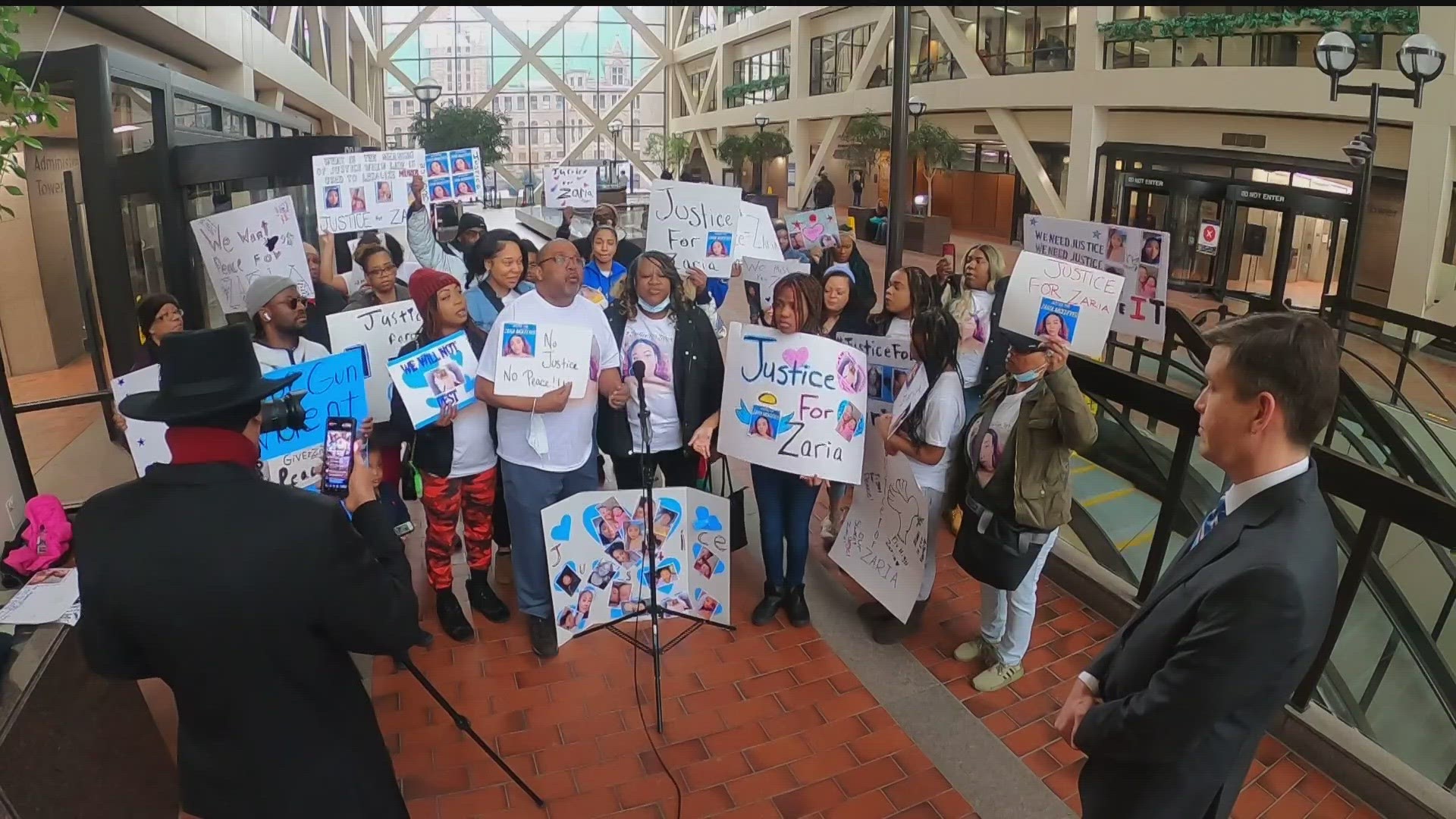MINNEAPOLIS — Juvenile prosecutors in the Hennepin County Attorney’s office recently received direction on sweeping changes in how the prosecution of teens under 18 years old will be handled under County Attorney Mary Moriarty.
The memorandum entitled “Youth prosecution guidelines” obtained by KARE 11 News was written by Sarah Davis, whom Moriarty named director of the Children and Families Division in the office.
“We are focused on accountability, treatment and healing; not punishment,” Davis wrote in the memo. “Another way that I think about accountability is that it is focused on stopping the harm from happening and repairing the harm that has happened, as opposed to punishment, which is focused on enforcing rules.”
In her previous work as executive director of The Legal Rights Center, Davis was known for stating that the court system is the worst place for at-risk youth. In her memo to Hennepin County’s juvenile prosecutors, Davis emphasizes that “we will make every effort to keep children out of the court system when possible,” and she states that certain case decisions will now require her or Moriarty's approval.
Those cases include those with adult certification, any case involving youth ages 10-12 at the time of the incident, and competency challenges. Davis states, “we will generally respect the competency findings made by court evaluators and will challenge findings of incompetency only when approved by me or Mary.”
The new direction to not challenge competency filings is a major departure from former County Attorney Mike Freeman’s direction. Juvenile offenders often request competency testing about whether they understand what’s going on in court. If the evaluator returns a finding of incompetent, the prosecution often would challenge the finding in court. Without challenging it, many cases would likely be dismissed or lessened.
In Moriarty’s first high-profile test of her new philosophies regarding adult certification of juveniles, she reversed the direction of the prosecution of two juveniles involved in a Brooklyn Park murder.
Zaria McKeever was shot to death in her apartment, allegedly by a 15-year-old while standing next to his 17-year-old brother, the boys allegedly sent there by McKeever’s ex-boyfriend Erick Haynes.
Under Freeman, prosecutors sought adult certification for the two juveniles which would have meant adult prison time if found guilty. But Moriarty offered them a plea deal for extended juvenile jurisdiction following a two-year program at the Red Wing juvenile prison.
McKeever’s family protested the decision and is now circulating a petition in hopes of removing the case from Moriarty’s office.
The 17-year-old accepted the deal and the case involving the 15-year-old is still pending.
“I feel terrified. In two years or less these same criminals will be back in my neighborhood,” said McKeever’s sister Tiffynnie Epps. “Mary is sending a detrimental message to the community that she does not care, and also [for adults] to have the youth do their crime.”
Davis’ memo echoes Moriarty’s explanation of the decision in the McKeever case, which is that the juvenile brain is not fully formed and youth are more susceptible to impulsivity, ability to consider risk and consequences, empathy, and susceptibility to peer pressure. Therefore, they should be held accountable differently than adult perpetrators.
“In addition to science and research related to brain development, there is a growing body of research demonstrating that system involvement increases the likelihood of recidivism, deeper system involvement and future incarceration,” Davis wrote.
The three main goals outlined in the memo for what to do when juveniles are referred to their youth prosecution division:
- Ensure community safety by preventing the instant conduct from happening again or escalating
- Center victims and support their healing
- Seek interventions that will support the youth respondent to be successful in the future and reduce future system involvement
Concerning survivors/victims and their families, the memo states that the office will prioritize communication with them.
“We will communicate early and often with victims, including sharing our focus on accountability, safety, treatment, and healing/rehabilitation. We will also be transparent about how we honor and value their perspective as we make decisions,” Davis wrote.
The memo states that juvenile prosecutors should utilize a “racial equity lens” to address racial disparities.
“You can anticipate that we will be proactive in identifying and addressing racial disparities at decision points within our sphere of control, as well as within our sphere of influence,” Davis wrote.
In another change of course, the memo states prosecutors must consider the “collateral consequences” of their decisions, including “immigration” consequences, implying a juvenile’s immigration status would be taken into account with charging decisions.
Moriarty’s spokesperson Nick Kimball provided the following statement:
“The point of the framework is to give youth prosecutors the tools and guidance they need to make the best decisions for public safety and get positive outcomes for victims, youth, and everyone impacted by these cases. We should all want the system doing everything possible to prevent kids from repeating the harmful behavior that landed them in the system. That’s the goal of these guidelines.”
The Hennepin County Attorney's Office provided the full memo to KARE 11 upon request:
Watch more KARE 11 Investigates:
Watch all of the latest stories from our award-winning investigative team in our special YouTube playlist:

